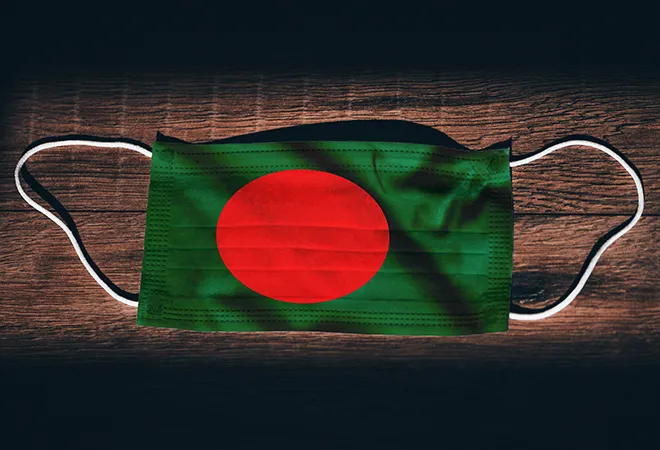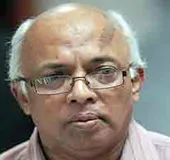
The official report in Bangladesh is that the number of known cases of people infected with the novel coronavirus (Covid 19) is now 44, with five persons having died from it. The feeling among sections of the public, though, is that there could be many more than what the authorities have been coming forth with. After all, even as Covid 19 has struck down one nation after another, a number of ministers in Prime Minister Sheikh Hasina’s government either denied that coronavirus had entered the country or that it was of a scale meriting undue concern. Some of these ruling party figures even went overboard in publicly stating that with Sheikh Hasina as the country’s leader, the nation had little to fear from the outbreak of the disease.
Be that as it may, the Bangladesh authorities have in these past few days been scrambling to contain the fallout of the outbreak. This has come through the adoption of emergency measures, specifically by seeking aid from India and China. On Wednesday, Riva Ganguly Das, India’s High Commissioner in Dhaka, handed over 30,000 surgical masks and 15,000 head covers to the Bangladesh authorities. Meanwhile, plans are in the offing for a video conference between Indian and Bangladeshi medical professionals on the ways in which the disease can be better handled in Bangladesh.
For their part, the Chinese authorities have already sent 500 testing kits to Bangladesh, with promises of more assistance on the way. On the list are 10,000 PPEs, 10,000 more testing kits, 30,000 N95 masks and 1,000 infrared thermometers. These measures, together with the assistance from India, are a sign of the desperate steps Dhaka has been taking over the past week to contain the disease. On the eve of Bangladesh’s anniversary of independence on 26 March, the country’s prime minister announced a financial package aimed at ensuring that workers in different factories were paid for their upkeep as the crisis unfolds. Meanwhile, the Japan International Cooperation Agency (JICA) has provided the authorities with five polymerase chain reaction (PCR) machines.
There is little question that it is the economy which is today in the danger zone in Bangladesh. In the last few months, private sector credit growth in the economy has been marked by a decline and the crisis now brought on by the coronavirus outbreak can only worsen the situation. Obviously, the country’s readymade garments sector, a major contributor to the economy, finds itself in a critical condition with buyers abroad ordering a cancellation of orders that had already been placed before the Covid 19 outbreak. Primark and other western buyers have stepped back from apparel orders amounting to $1.5 billion, a move which clearly threatens the livelihood of as many as 7,22,000 workers in 1,089 RMG factories across the country. With the RMG industry already having shown negative growth of 5.71 per cent in the first half of the ongoing fiscal year, there are very legitimate fears of conditions worsening in light of the new crisis. It would be well to recall that in the 2018-19 fiscal year, of the $34 billion worth of garments exported by Bangladesh, 60 percent went to Europe. That prospect is now under a dark cloud.
The looming crisis in the garments sector is serious enough to have prompted Rubana Huq, president of the Bangladesh Garments Manufacturers and Exporters Association (BGMEA), into writing to the German Minister for Economic Cooperation and Development, Gerd Muller, for Berlin to come to Dhaka’s assistance in preventing the ‘disastrous impact’ that Covid 19 has begun to have on Bangladesh’s economy. Muller’s response has been quite encouraging. “I will not forget the workers in Bangladesh,” he responded to Huq. That said, it is not just garments that are under threat. The economy is poised to take a battering in its exports of leather, footwear, jute, frozen food, home textiles and plastic products. For a country that has had GDP growth of over 7 percent for the last few years and has till recently touted its coming graduation to a middle-income country, the signs are certainly not good. With the hospitality industry, or more particularly its tourism, employing 500,000 people, it is feared that anywhere between 20 and 30 percent of employees will lose their jobs in the aftermath of the the virus’s outbreak.
Where overall arrangements to handle cases of coronavirus affliction are the issue, the Bangladesh authorities have clamped a 10-day lockdown on the country. The police and other security forces have been deployed to ensure that people do not move out of their homes and that masks are used by citizens. It is in the country’s hospitals, though, that there are reasons for concern. At present, there are 1,285 ICU beds in the hospitals that cannot be given over to the treatment of coronavirus patients. Meanwhile, the government has moved to prepare a mere 29 beds for Covid 19 patients in five hospitals in Dhaka.
Not much light appears at the end of the tunnel. But Bangladesh’s government cannot afford to sit back, understandably. In a country of 160 million-plus people and with resource constraints, it is a difficult calling. Politically and economically, the government is caught in a bad fix. Lest one forget, the authorities have just released former prime minister and chairperson of the opposition Bangladesh Nationalist Party, Begum Khaleda Zia, from prison for six months on condition that she stays at home and does not engage in politics. Zia went to jail in February 2018 following conviction on corruption charges and despite numerous appeals for bail she was kept a prisoner. It is not too hard to understand that her family’s appeal for her release as also fears over the Covid 19 situations have been factors behind the government’s sudden demonstration of compassion.
The views expressed above belong to the author(s). ORF research and analyses now available on Telegram! Click here to access our curated content — blogs, longforms and interviews.




 PREV
PREV


